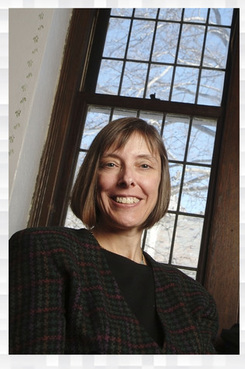'They Can't Get Out of Bed': The Mental-Health Specter in Attorney-Discipline Cases
"We all make mistakes," said Connecticut's first chief disciplinary counsel, Mark Dubois. "But many of these, if you really tease back to the root cause, arise out of mental health or substance abuse or physical illness."
September 23, 2019 at 01:08 PM
7 minute read
 Photo: Shutterstock
Photo: Shutterstock
New Britain attorney Joseph McDonald was one of about 365 Connecticut lawyers facing ethics charges between 2014 and 2015.
 Click here to read special report
Click here to read special reportOn a spreadsheet of proceedings before the Connecticut Office of Chief Disciplinary Counsel, his case occupies just one row. But in it is a story of a lawyer in distress, and an illustration of the link between mental illness and attorney discipline.
Legal ethics expert Leslie Levin said untreated mental illness, alcohol- and substance-abuse issues often overlap into discipline, though it's difficult to measure the extent.
Not all cases stemming from mental health or substance abuse are obvious, said Connecticut's first chief disciplinary counsel, Mark Dubois, as some issues fly under the radar, despite being the cause of grievance cases.
"We all make mistakes," Dubois said. "But many of these, if you really tease back to the root cause, arise out of mental health or substance abuse or physical illness."
McDonald's case showed that even with treatment, the outcome could be tragic.
McDonald was placed on inactive status in 2014 after struggling with an addiction to OxyContin, which he started taking to treat a shoulder injury, according to court records. He was later reinstated when the court found he was "no longer incapacitated from continuing to practice law." He underwent inpatient, court-mandated drug programs, and tested negative during court drug tests.
But McDonald died of an accidental overdose Sept. 14, 2016.
He was 36.
His family has since created the Joseph P. McDonald Esq. Memorial 5K, aimed at helping the Teen Challenge organization combat addiction in young adults.
Related story: Legal Community Mourns Well-Known Young New Britain Attorney
Its efforts are part of a growing movement that contributes to discussions on the link between mental health and lawyering.
Decade of DUIs
The Connecticut Law Tribune's study of the state's attorney discipline cases from January 2014 to August 2019 shows a pattern of repeat offenses, with lawyers prosecuted for mental health-related issues often accumulating ethics charges tied to the underlying condition.
For instance, Tolland labor and employment attorney Jasmin Rojas, Fairfield lawyer Peter Craft and Hartford tax lawyer Guy McDonough were all suspended after at least three convictions for driving under the influence of alcohol or drugs.
 Attorney-ethics expert Leslie C. Levin of the University of Connecticut School of Law. Courtesy photo
Attorney-ethics expert Leslie C. Levin of the University of Connecticut School of Law. Courtesy photo"There are a number of lawyers who become depressed and have substance abuse problems, who may not get the help that they need," said Levin, who practiced for 14 years before becoming a law professor at the University of Connecticut, where her research has focused on legal discipline and ethical decision-making.
In the case of McDonough, who was admitted to the bar in 1996, he had DUIs spanning about a decade, according to court records. His first arrest in 2003 for operating a motor vehicle under the influence of alcohol or drugs cost him $500 and 18 months' probation. By the time he was arrested about 12 years later, the fine had climbed to $1,000, and McDonough had to re-sit for the Multistate Professional Responsibility Examination and make a strong case for resuming practice.
For that suspension, the court considered aggravating factors: McDonough's repeat offenses, prior discipline and his admission that he struggled to maintain sobriety. The attorney's lack of dishonest or selfish motive, his personal or emotional problems, physical or mental disability and remorse were mitigating factors. There was also no evidence that McDonough's behavior had affected his clients.
Read more: Lawyer Wants License Back After Three DUI Convictions
McDonough did not respond to requests for comment.
'Unable to Function'
 Photo: Shutterstock.com
Photo: Shutterstock.comDubois, whose practice now focuses on defending lawyers charged with ethics violations, said red flags, like cases where lawyers haven't responded to deadlines, haven't called clients or have showed up late to court, sometimes indicate a pattern.
"With extreme depression, they can't get out of bed, let alone answer their clients phone calls and emails and letters, or go to court," he said. "If they have a substance-abuse problem, they're impaired and unable to function."
The way Dubois sees it, Connecticut attorneys should be more concerned about mental health than grievance complaints.
"You have a 100 times more likelihood to have a mental health, physical health, substance-abuse problem that affects your practice than you do having a violation of a rule of discipline," he said. "And often the disciplinary violations arise out of an underlying substance abuse or mental health issue."
'Self-Regulating One's Emotions'
Chicago commercial litigator Jeffrey Bunn has made it his mission to bring these issues to the forefront.
When he retired from practice, Bunn started The Mindful Law Coaching and Consulting Group, which advocates for mindfulness and meditation programs in law firms. A former chairman of the Chicago Bar Association, he has since founded the bar's Mindfulness and the Law Committee.
 Jeffrey Bunn, retired Chicago litigator who founded the Mindful Law Coaching and Consulting Group. Courtesy photo.
Jeffrey Bunn, retired Chicago litigator who founded the Mindful Law Coaching and Consulting Group. Courtesy photo.Bunn said he discovered meditation as a "drilled-down Type A" litigator and long-distance runner who had to find an alternative form of exercise after getting surgery for a knee injury. He started doing yoga, which led to a meditation retreat that did wonders to counteract the stresses and anxieties of his job, a message he aims to spread to law firms.
"Initially I thought it was kind of right brain, left brain, never the tween would meet. But the more I thought about it, the more I realized actually one can inform the other quite well," Bunn said. "It's a great way for men and women in pretty much any practice, but certainly a courtroom practice, to deal with stresses and strains, to deal with focus."
One of the main issues Dunn has noticed among lawyers are "soft social issues" such as anxiety, sleeplessness and an inability to focus. But the way he sees it, if unaddressed, these could potentially balloon into harder, clinically diagnosable problems, such as addiction or severe depression.
Often, discipline cases derived from addiction involve interventions from attorney-assistance programs such as Connecticut's Lawyers Concerned for Lawyers, designed to spot substance abuse, gambling and behavioral health problems in attorneys.
Bunn said in Chicago that program has prescribed meditation exercises to attorneys, some of whom are undergoing discipline.
"The most important health issue that men or women in the legal profession can look to meditation for is self-regulating one's emotions," he said. "First of all to understand it, to get next to it and feel it, and understand that it will come and go and it cannot dictate how we conduct ourselves as professionals."
But it hasn't been easy to encourage attorneys to meditate and talk about mindfulness and mental health, according to Bunn, who said, "The silence has been deafening."
Read more:
'Sociopaths and Lawyers': Former Disciplinarian Offers Tips to Attorneys
Connecticut's 7 Trickiest Bar Rules Tripped Up Hundreds of Lawyers
It's Time to Talk About the Family's Role in the Mental Health of Legal Professionals
This content has been archived. It is available through our partners, LexisNexis® and Bloomberg Law.
To view this content, please continue to their sites.
Not a Lexis Subscriber?
Subscribe Now
Not a Bloomberg Law Subscriber?
Subscribe Now
NOT FOR REPRINT
© 2025 ALM Global, LLC, All Rights Reserved. Request academic re-use from www.copyright.com. All other uses, submit a request to [email protected]. For more information visit Asset & Logo Licensing.
You Might Like
View All
After Shutting USAID, Trump Eyes Department of Education, CFPB


Trump Administration Faces Legal Challenge Over EO Impacting Federal Workers
3 minute read
Big Law Practice Leaders Gearing Up for State AG Litigation Under Trump
4 minute readTrending Stories
- 1Judge Rules Georgia Railroad Can Seize Land as Landowners Vow to Fight
- 2On the Move and After Hours: Einhorn Barbarito; Gibbons; Greenbaum Rowe; Pro Bono Partnership
- 3On The Move: Squire Patton Boggs, Akerman Among Four Firms Adding Atlanta Partners
- 4Is the Collateral Order Doctrine About to Have a 'Brat Summer'?
- 5Trump Administration Faces Lawsuit Over USAID Stop-Work Orders
Who Got The Work
J. Brugh Lower of Gibbons has entered an appearance for industrial equipment supplier Devco Corporation in a pending trademark infringement lawsuit. The suit, accusing the defendant of selling knock-off Graco products, was filed Dec. 18 in New Jersey District Court by Rivkin Radler on behalf of Graco Inc. and Graco Minnesota. The case, assigned to U.S. District Judge Zahid N. Quraishi, is 3:24-cv-11294, Graco Inc. et al v. Devco Corporation.
Who Got The Work
Rebecca Maller-Stein and Kent A. Yalowitz of Arnold & Porter Kaye Scholer have entered their appearances for Hanaco Venture Capital and its executives, Lior Prosor and David Frankel, in a pending securities lawsuit. The action, filed on Dec. 24 in New York Southern District Court by Zell, Aron & Co. on behalf of Goldeneye Advisors, accuses the defendants of negligently and fraudulently managing the plaintiff's $1 million investment. The case, assigned to U.S. District Judge Vernon S. Broderick, is 1:24-cv-09918, Goldeneye Advisors, LLC v. Hanaco Venture Capital, Ltd. et al.
Who Got The Work
Attorneys from A&O Shearman has stepped in as defense counsel for Toronto-Dominion Bank and other defendants in a pending securities class action. The suit, filed Dec. 11 in New York Southern District Court by Bleichmar Fonti & Auld, accuses the defendants of concealing the bank's 'pervasive' deficiencies in regards to its compliance with the Bank Secrecy Act and the quality of its anti-money laundering controls. The case, assigned to U.S. District Judge Arun Subramanian, is 1:24-cv-09445, Gonzalez v. The Toronto-Dominion Bank et al.
Who Got The Work
Crown Castle International, a Pennsylvania company providing shared communications infrastructure, has turned to Luke D. Wolf of Gordon Rees Scully Mansukhani to fend off a pending breach-of-contract lawsuit. The court action, filed Nov. 25 in Michigan Eastern District Court by Hooper Hathaway PC on behalf of The Town Residences LLC, accuses Crown Castle of failing to transfer approximately $30,000 in utility payments from T-Mobile in breach of a roof-top lease and assignment agreement. The case, assigned to U.S. District Judge Susan K. Declercq, is 2:24-cv-13131, The Town Residences LLC v. T-Mobile US, Inc. et al.
Who Got The Work
Wilfred P. Coronato and Daniel M. Schwartz of McCarter & English have stepped in as defense counsel to Electrolux Home Products Inc. in a pending product liability lawsuit. The court action, filed Nov. 26 in New York Eastern District Court by Poulos Lopiccolo PC and Nagel Rice LLP on behalf of David Stern, alleges that the defendant's refrigerators’ drawers and shelving repeatedly break and fall apart within months after purchase. The case, assigned to U.S. District Judge Joan M. Azrack, is 2:24-cv-08204, Stern v. Electrolux Home Products, Inc.
Featured Firms
Law Offices of Gary Martin Hays & Associates, P.C.
(470) 294-1674
Law Offices of Mark E. Salomone
(857) 444-6468
Smith & Hassler
(713) 739-1250










